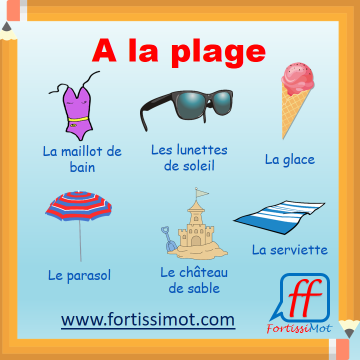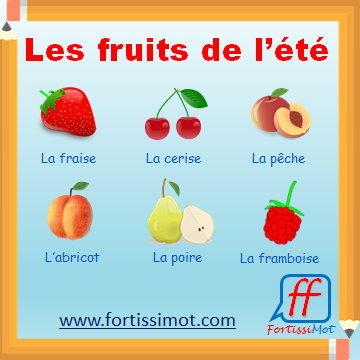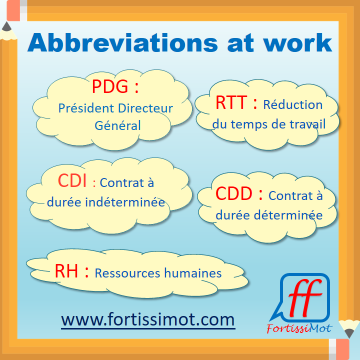Here are some vocabulary words if you get the chance to spend your vacation by the sea:

Here are some vocabulary words if you get the chance to spend your vacation by the sea:

Pierre de Coubertin, the founder of the modern Olympic Games and the International Olympic Committee (IOC), originally established the Latin motto “Citius, Altius, Fortius” (Faster, Higher, Stronger). Since 2021, it has been extended to include “Communiter” (Together). This motto embodies the spirit of striving for excellence and unity, which is celebrated through the awarding of gold, silver, and bronze medals.

If you’re traveling in France this summer, never put ice cubes in your wine glass. Wine is sacred, and you mustn’t add anything to it. Who knows how the French might interpret that!

While the Olympic flame tours France, discover expressions related to the word “flame.”

Here are a few useful vocabulary words if you’re going to the market these days.

Here are a few abbreviations and their explanations widely used in the professional world:

Don’t forget the accents. They are an essential part of French grammar. In writing, accents can distinguish a verb from a preposition, for example.
